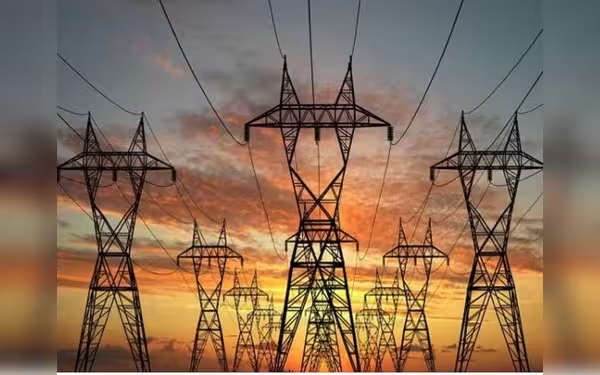Thursday, November 21, 2024 07:47 AM
Electricity Sales Plummet 11% As NEPRA Raises Alarm Over Price Hike
- Electricity sales drop by 11% due to price hikes.
- NEPRA expresses concern over financial strain on DISCOs.
- Shift to solar power disrupts traditional electricity demand.
 Image Credits: dailypakistanen
Image Credits: dailypakistanenPakistan's electricity sales have dropped by 11%, raising concerns at NEPRA over price hikes and the shift to solar energy.
In recent times, Pakistan has witnessed a notable decline in electricity sales, with a staggering drop of 11%. This decline has been primarily attributed to the rising prices of electricity, which has raised alarms within the National Electric Power Regulatory Authority (NEPRA). During a recent hearing focused on the first-quarter fuel adjustment charges for the current fiscal year, NEPRA officials examined a revised request from distribution companies, commonly known as DISCOs. These companies sought adjustments totaling PKR 6.47 billion for the quarter, highlighting the financial strain they are under.
Statistics presented during the hearing painted a concerning picture of the electricity market. The Quetta Electric Supply Company (QESCO) was among the hardest hit, reporting a shocking 19% drop in electricity sales. Other regions also faced significant declines, with MEPCO experiencing a 15.76% decrease, FESCO at 14.48%, and PESCO at 14.47%. Even LESCO, TESCO, GEPCO, SEPCO, HESCO, and IESCO reported declines ranging from 4.02% to 8.41%. In contrast, Karachi's K-Electric reported a relatively smaller decline of 2.7% in electricity sales during September and October.
FESCO officials pointed out several key factors contributing to this decline. One major reason is the closure of industries in their region, which has led to a reduced demand for electricity. Additionally, there has been a significant shift from traditional grid electricity to solar power, particularly for agricultural tube wells. This growing trend of adopting solar energy is disrupting the conventional demand patterns for electricity, and its effects are becoming increasingly apparent.
NEPRA members expressed their deep concern regarding the reduced electricity sales. They noted that if sales had met the expected targets, consumers could have potentially saved up to PKR 60 billion. Instead, the current shortfall is placing additional financial burdens on customers, which is a worrying trend. Rafiq Ahmed Sheikh, a member of NEPRA, emphasized the unsustainability of the current electricity distribution model, advocating for privatization as a potential solution. He stated, "Distribution companies cannot operate effectively under the existing system." This statement underscores the urgent need for reform in the energy sector.
Moreover, NEPRA raised questions about the disparities in solar energy adoption across different regions, particularly highlighting the relatively low impact of solar power in Karachi. Sheikh criticized the justifications provided by distribution companies and pointed out that complaints regarding forced load-shedding have also emerged due to the reduced demand for electricity.
To tackle these pressing issues, NEPRA has requested detailed reports from all DISCOs regarding their load-shedding practices in their respective regions. The hearing concluded with discussions on the various challenges facing the energy sector and the urgent need for systemic reforms to ensure a stable and sustainable electricity supply for all consumers.
The decline in electricity sales in Pakistan serves as a wake-up call for both the government and the energy sector. As consumers face rising costs and reduced services, it is imperative that authorities take decisive action to address these challenges. The shift towards renewable energy sources like solar power presents both an opportunity and a challenge, and finding a balance will be crucial for the future of Pakistan's energy landscape. Only through comprehensive reforms and a commitment to sustainable practices can the country hope to stabilize its electricity market and provide reliable services to its citizens.













